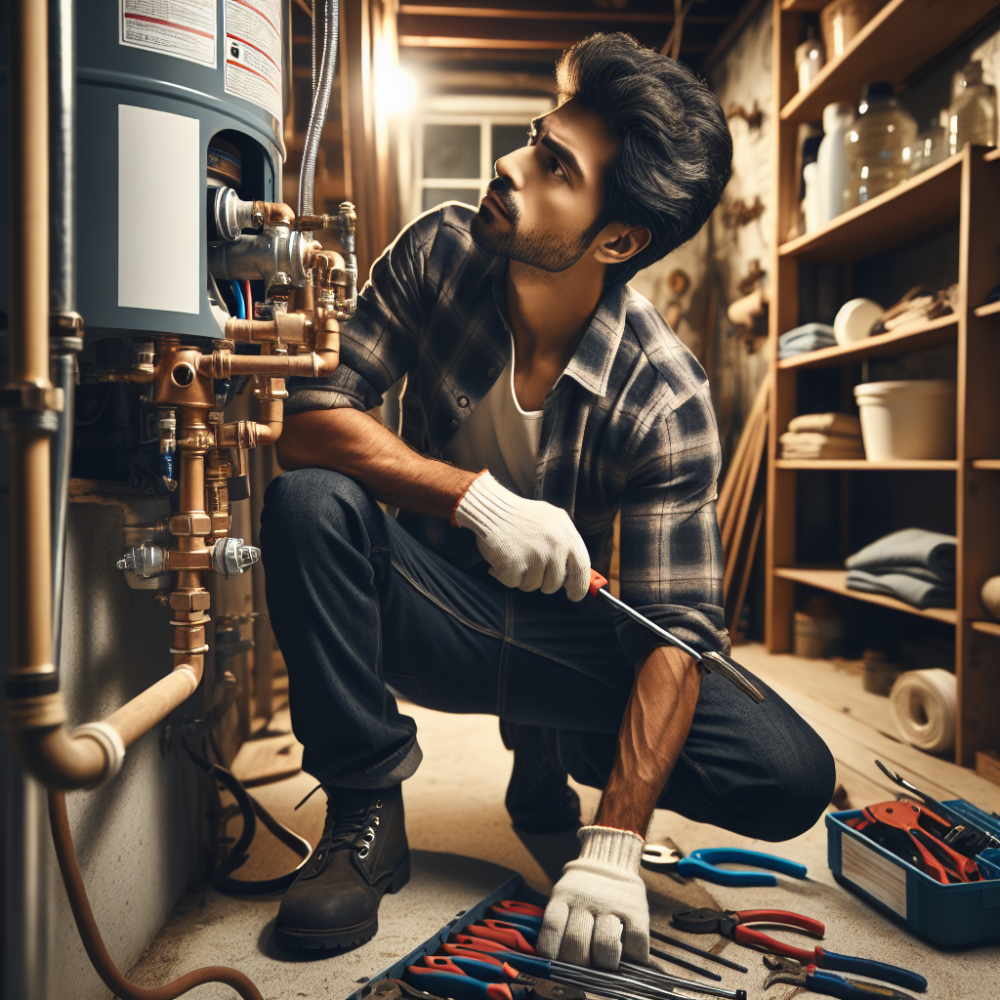Comprehensive Guide to Water Heater Maintenance and Installation

Posted on: Sunday, March 3rd, 2024
Water heaters are vital for the comfort and functionality of homes, providing hot water for showers, dishes, and other domestic tasks. However, they require regular maintenance to operate efficiently and safely. Knowing when to service or replace your water heater can save you money on utility bills and prevent potential hazards. This guide provides up-to-date, factually accurate information on sustaining your water heater's performance and lifespan.
Water heaters, whether tankless or traditional tank models, are complex systems that demand attention to detail during maintenance and installation. Regular servicing can extend the life of your water heater and prevent unexpected breakdowns. It's crucial to recognize the signs of a failing water heater, which include inconsistent water temperatures, discolored water, and unusual noises. Prompt action in these cases can avoid more significant issues.
Installation of a new water heater involves several considerations, including energy efficiency, size, and type. Modern water heaters are much more energy-efficient, reducing environmental impact and lowering energy bills. Selecting the right size water heater is vital; too small, and you'll run out of hot water, too large, and you waste energy heating water you don't use. Professionals can assess your household's needs to recommend the ideal model.
Maintenance is key to extending the lifespan of your water heater. This involves regular inspections, flushing the system to remove sediment, checking the anode rod, and ensuring the temperature and pressure relief valve is functioning correctly. These preventive measures can significantly prevent malfunctions and improve efficiency.
Energy efficiency is increasingly important in water heaters. Look for models with a high Energy Factor (EF) rating as they use less energy to heat water. Tankless water heaters, although more expensive initially, offer long-term savings and endless hot water supply. However, they require professional installation and may need significant alterations to your plumbing system.
Safety should never be overlooked. Water heaters involve electricity, gas, or sometimes oil, presenting potential risks. Ensure installation and repairs are carried out by certified professionals to mitigate dangers such as gas leaks or electrical fires. Regular safety checks, especially of the venting system in gas water heaters, are essential.
The cost of water heaters and their installation varies widely, depending on the type, capacity, and efficiency. While upfront costs can be high, especially for tankless models, the long-term savings on utility bills can justify the investment. Rebates and tax incentives for energy-efficient models can also reduce the overall expense.
Considering an upgrade or replacement? The latest advancements in water heater technology offer smarter features, such as Wi-Fi connectivity for remote temperature control and monitoring. These smart water heaters can provide insights into your usage patterns, allowing for even more efficient operation and savings.
Professional annual servicing is recommended to keep your water heater in optimal condition. A professional can detect issues early, ensuring your water heater operates efficiently and safely. This annual check-up is a small investment that pays off by maximizing the performance and extending the lifespan of your water heater.
Choosing the right water heater and maintaining it properly are important decisions for any homeowner. Not only does it contribute to the comfort and convenience of your home, but it also impacts your monthly utility bills and safety. With the right approach to maintenance and when necessary, replacement, you can ensure that your water heater remains a reliable, efficient, and safe component of your home's plumbing system.